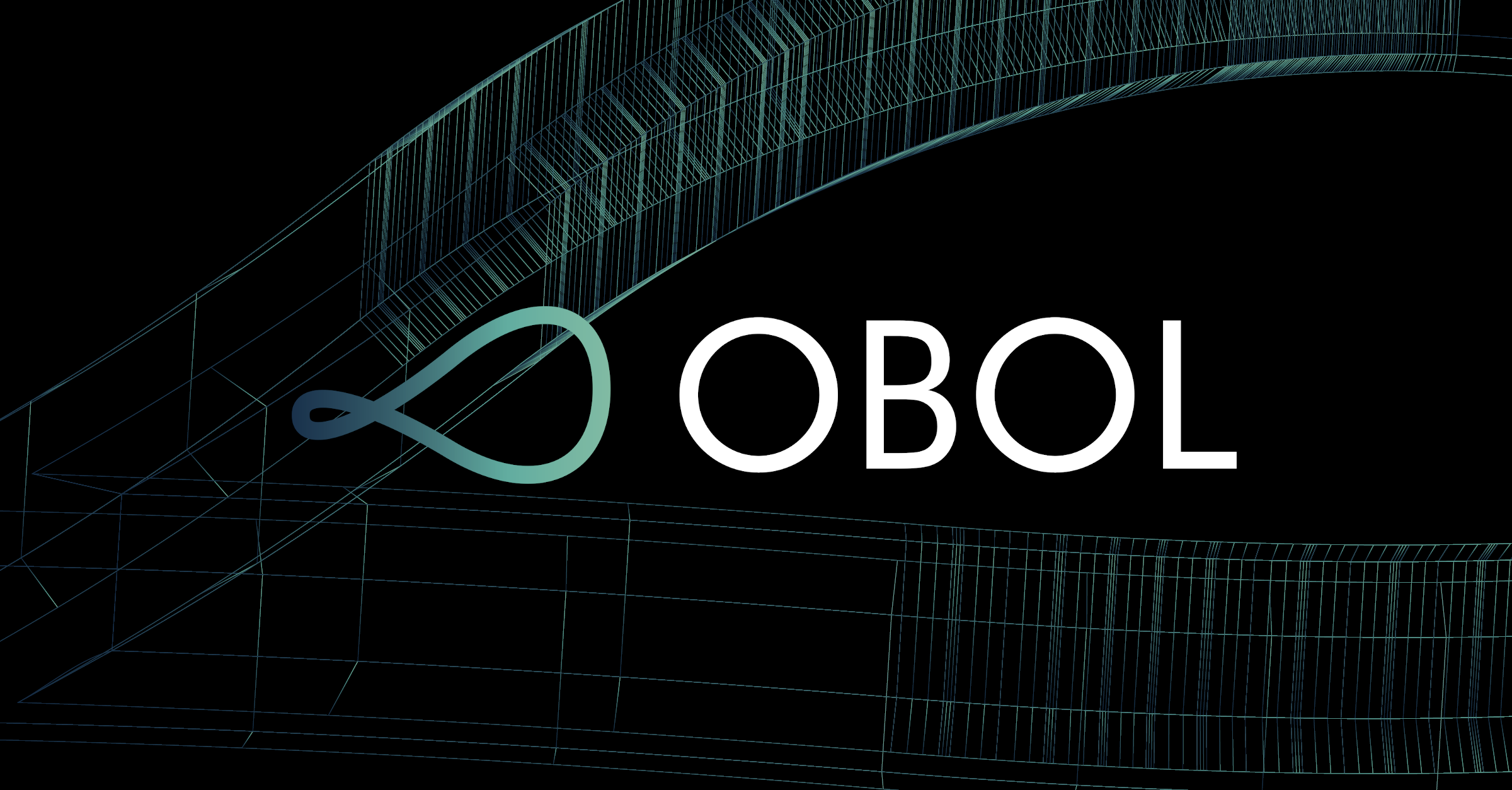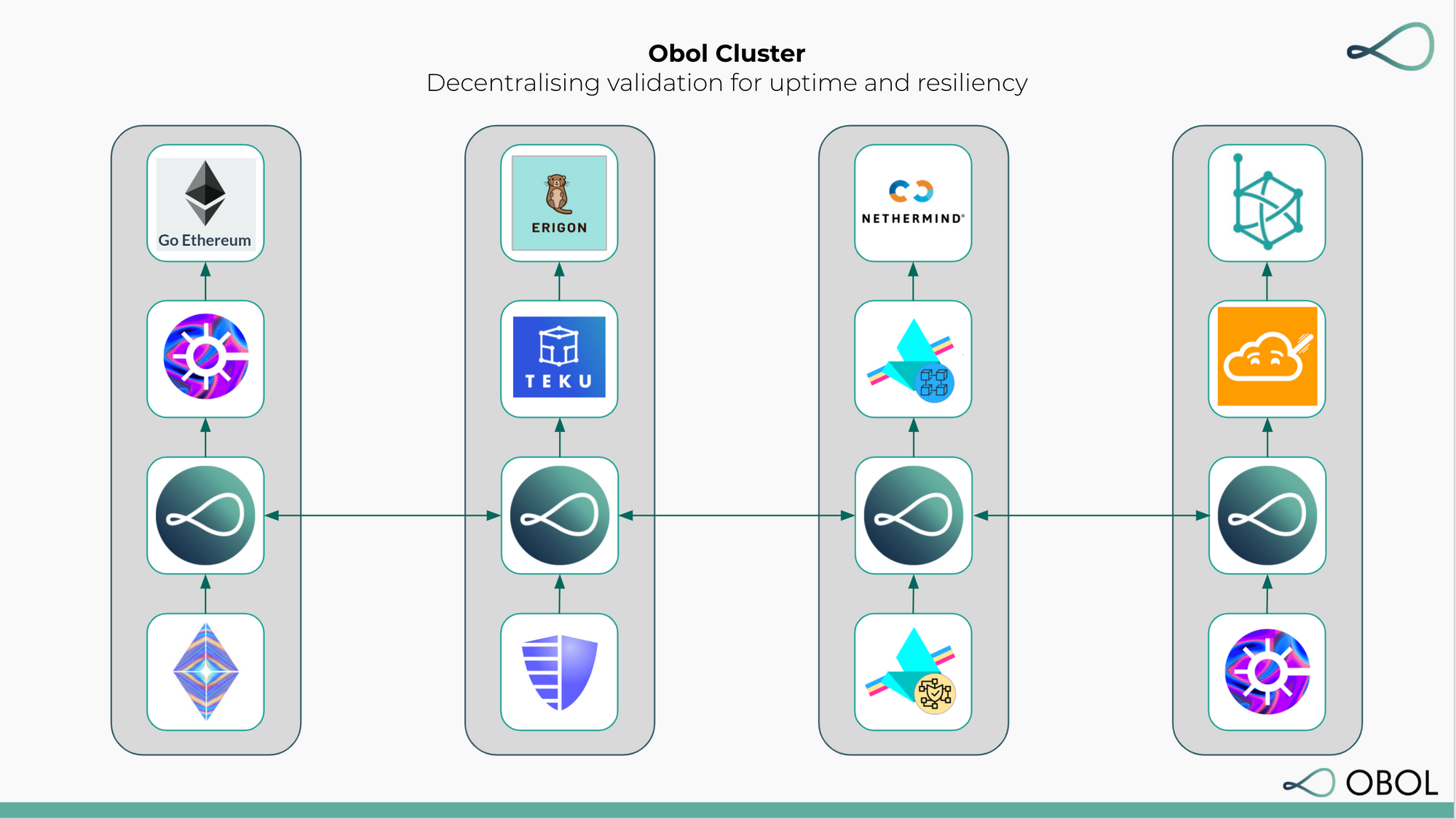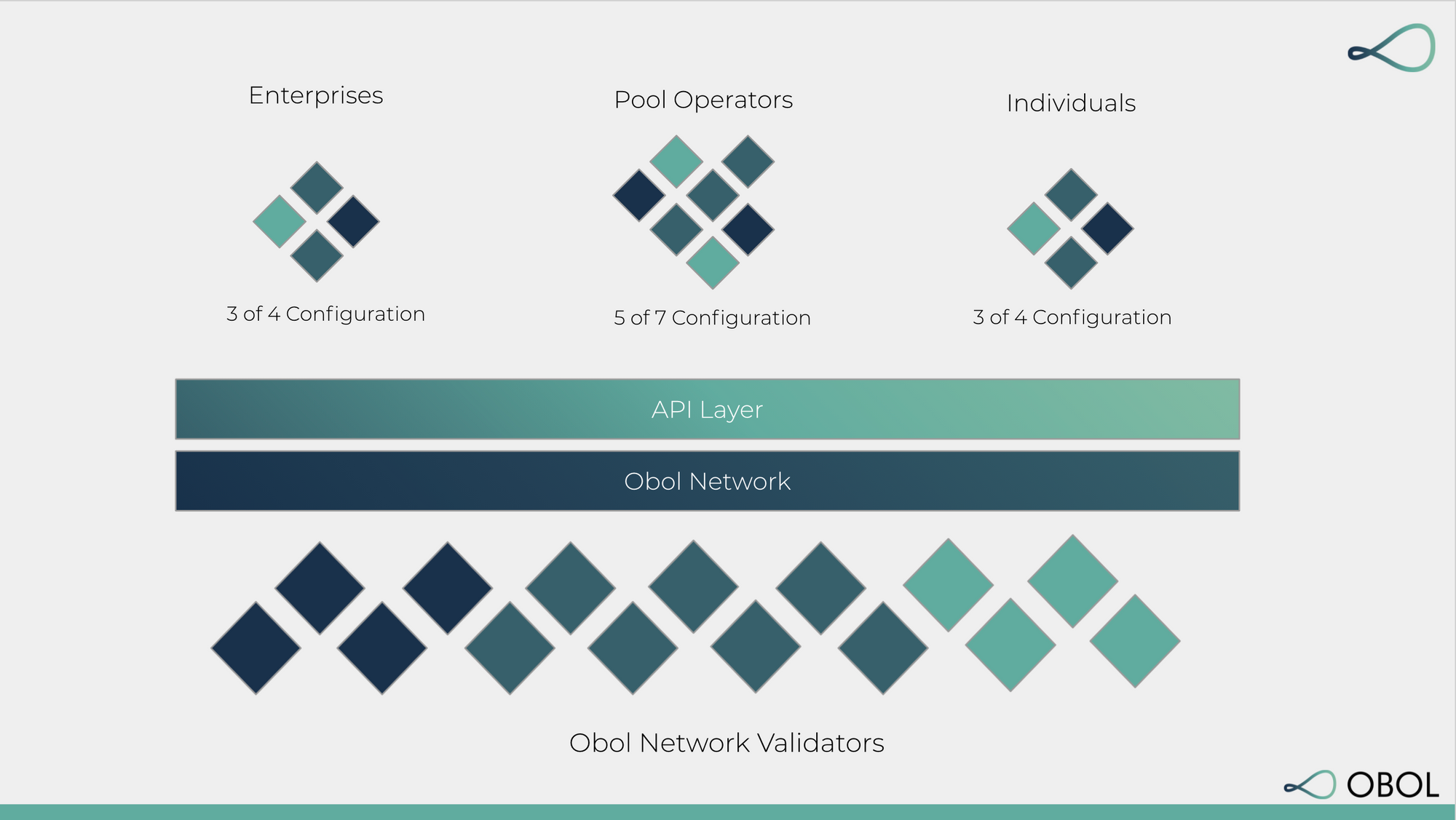Obol's "Genesis Community" Of Investors & Advisors
Today we are excited to share our genesis community along with our guiding mission, vision, and values on our path to securing the decentralisation of Proof of Stake Ethereum.

Over the past 12 months we have been building a community of strategic supporters across the entire blockchain technology stack to enable more resilient and distributed staking infrastructure on public blockchain networks. Early stage research on Distributed Validator Technology, driven by the Ethereum Foundation and Obol Founding Team, marked the beginning of a viable future for resilient, multi-operator infrastructure deployments.
Shortly after the launch of the Beacon Chain, we decided that a formal project was required to fund, build, coordinate, deploy, and maintain this new staking paradigm for the Ethereum Community. The time has come for the effort to begin its progressive decentralization, which will be lead by the Obol core team and its community. Today we are excited to announce the genesis community of the Obol Network, which consists of the following strategic supporters.
Project Investors
- Ethereal Ventures
- Acrylic Capital
- Coinbase Ventures
- Figment
- Blockdaemon
- StakeFish
- Staking Facilities
- Chorus One
- Yield Ventures
- Delphi Digital
- IOSG VC
- The LAO
- Defi Alliance
- Advanced Blockchain
- ID Theory
- StableNode
- EverStake
- Anonymous
Strategic Angels
- Joe Lallouz & Aaron Henshaw (Bison Trails / Coinbase Cloud)
- Stefan George (CTO Gnosis)
- Jim McDonald (CTO Attestant)
- Mariano Conti (Former Head of Smart Contracts at Maker Foundation)
- Konstantin Richter (CEO Blockdaemon)
- Nathan Mckauley (CEO Anchorage)
- Tim Ogilvie (CEO Staked)
- Ben Edgington (Lead Product Manager at ConsenSys & Eth2.news)
- Jonny Rhea (CTO Element Finance)
- Anthony Sassano (The Daily Gwei & EthHub)
- Evan Van Ness (Week in Ethereum News)
- Jack O'Holleran (CEO SKALE Labs)
- Deniz Omer (Head of Ecosystem Growth - Kyber Network)
- Patricio Worthalter (Founder POAP)
- Jerome D’Tychey (CEO of Cometh)
- Chris Wessels (Founder GraphOps)
- David Hoffman (Bankless)
- Ryan Sean Adams (Bankless)
- Anonymous
Project Advisors
- Mara Schmiedt (Bison Trails / Head of BD Coinbase Cloud)
- Joe Lallouz (Co-founder & CEO Bison Trails / Coinbase Cloud)
- Ben Edgington (Lead Product Manager at ConsenSys & Eth2.news)
- Jim McDonald (CTO Attestant)
- Raul Jordan (CEO Prysmatic Labs)
- Terence Tsao (Co-founder Prysmatic Labs)
- Viktor Bunin (Protocol Specialist - Bison Trails / Coinbase Cloud)
- Felix Lutsch (CCO Chorus One - Staking Economy)
- Jun Soo Kim (COO Stake Fish)
- Chris Remus (CEO Chainflow)
- Jack O'Holleran (CEO Skale Labs)
- Jenia Barkanova (VP Global Marketing Skale Labs)
- Anonymous
- Anonymous
- Anonymous
Obol Network Development Teams
- TBA
- TBA
- TBA
Our Mission
Obol is building a trust minimized staking protocol for public blockchain networks based on Distributed Validator Technology (DVT). DVT enables validators to configure clusters with active-active redundancy, an improvement on the widely used configuration of active-passive redundancy.
This is achieved by being able to split a validator key across multiple independently operating instances and utilizing threshold signing to perform consensus duties. You can think of this as enabling your validator to operate like a multi-sig, removing single points of technical failure including:
- Availability Failure
- Validator Key Compromise
Our mission is to evolve DVT by building a crypto economic protocol and diverse community that can enable the primitive to become a sustainable public good, increasing the security and resiliency of public blockchain networks. We will begin this mission by focusing on building solutions to support the future of Ethereum POS.

Our Vision
Today there is ~$33.0BN of value staked into the Beacon Chain, amounting to ~7.2% of the total supply. Over the next 24 months, we believe the total ETH supply securing the Beacon Chain will continue to accelerate as the merged network matures, adoption continues, and the new asset class of Internet Bonds gains understanding.
As the total value of assets staked increases, software advancements must also be realized for validator tooling and staking products to mitigate correlated failures and centralization of stake that could compromise chain finality.
We believe a more robust and secure Ethereum can be realized through a collaborative infrastructure protocol that mitigates correlated risk by enabling finality to happen regardless of the downtime or disappearance of a few network operators. This can be achieved by utilizing the DVT primitive, which includes cryptographic primitives such as threshold signing and distributed key generation, which can enable a group of network operators to act as one single validator together – something we like to call a multi-operator validator.

The Network is designed to offer developers, institutions and individuals; such as exchanges, custodians, DeFi protocols, DAOs, financial institutions and at-home validators, a scalable layer to configure, monitor, and deploy their own multi-operator staking clusters without the need to coordinate multiple operators or manage complex infrastructure configurations. The Obol Network is designed to be built on top of, with the intention of accelerating the innovation and robustness of the next generation of staking products and protocols.

Our Values
DVT is a powerful infrastructure primitive that can be used in a variety of configurations and implemented across a number of different public POS networks.
We believe that trust minimized staking will naturally evolve into trustless staking in the coming years and become the de facto way the majority of tokens are staked in proof of stake networks.
As this technology will become mission critical to network resiliency and security, we must ensure the protocol is designed to outlive its early participants. As a result, it is important that the Obol core team and its community establish strong values. These values will serve as our north star and will be updated with community involvement as the project progresses and scales.
Technology Values
- Open Source
- Distributed Development Teams
- Security Focused Design
- Test Driven Development
- Trust Minimised
- Interoperability
- Client Diversity and Inclusion
Core Team Values
- Employee Diversity & Inclusion
- Remote First
- Core Team Health & Wellness
- Financial Responsibility & Transparency
Community Values
- Inclusive & Collaborative
- Emphasis on Education
- Grants Focused (DV’s, Deployers, and Researchers)
- Progressive Decentralization
What Comes Next?
The Obol core team is hard at work making this vision a reality and welcomes anyone interested in joining the mission to help re-architect the industry of network validation. Over the coming months we will be heads down growing the community, core team, and developer base ahead of our first testing program.
We will keep everyone informed with our findings and spread awareness on the evolution of Distributed Validator Technology, its implementations, and potential use cases.
The Obol protocol will become an open, community governed, self-sustaining project over the coming months and years. Its participants will be responsible for the security and distribution of consensus finding on the world's most used public blockchain networks. Together we will incentivize, build, and maintain distributed technology that makes public networks a more secure and resilient foundation to build on top of.
Best,
Collin Myers & Oisín Kyne

